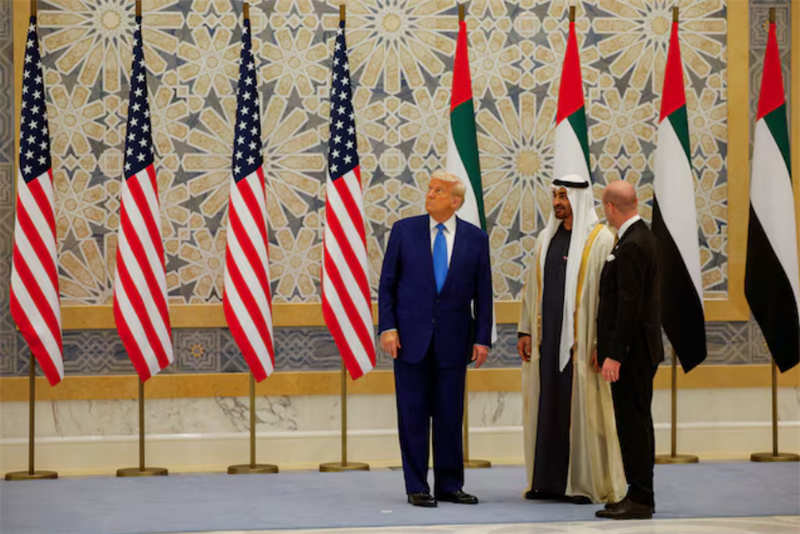During a sweeping Middle East tour, U.S. President Donald Trump unveiled a series of multibillion-dollar agreements aimed at transforming the Gulf region into a global AI hub. A highlight is a preliminary deal that would allow the United Arab Emirates (UAE) to import up to 500,000 Nvidia AI chips annually, supporting the construction of a 5-gigawatt AI campus in Abu Dhabi — the largest outside the U.S.
The chip deal, expected to start in 2025 and run through at least 2027, allocates roughly 100,000 chips per year to UAE-based G42, with the rest going to U.S. cloud providers like Microsoft and Oracle, who are planning infrastructure partnerships in the region.
The announcements are part of Trump's push to deepen U.S. tech and commercial ties with the Gulf. In total, over $200 billion in UAE agreements were announced, including a $14.5 billion aviation deal with Boeing, GE Aerospace, and Etihad Airways. Saudi Arabia also committed to buying chips from Nvidia, AMD, and Qualcomm, with broader AI collaborations under discussion.
While the administration frames these deals as a way to extend U.S. AI leadership and reach energy-rich partners, they've triggered alarm in Washington. Critics argue that offshoring such critical infrastructure risks undermining U.S. technological dominance and contradicts Trump's "America First" agenda.

"There's a real risk the most powerful AI data centers will be built in the Middle East, not the U.S.," said one senior administration official, warning of job losses and reduced oversight.
Particular scrutiny surrounds G42, whose ties span both U.S. investors and Chinese tech ecosystems. Chaired by UAE national security adviser Sheikh Tahnoon bin Zayed Al Nahyan, the firm is backed by Abu Dhabi's Mubadala fund and U.S. firm Silver Lake. While the Biden administration previously blocked similar exports, the Trump team is reportedly preparing to lift restrictions.
To address national security concerns, the U.S. has demanded reciprocal infrastructure commitments — for every AI data center built in the UAE, one must be built in the U.S. A joint working group will define "advanced AI chips" and establish compliance protocols.
Dealmakers David Sacks and Sriram Krishnan, leading Trump's AI policy, argue that global deployments are essential. "We need our allies to build on American technology," said Sacks.
Still, experts warn that America's limited energy capacity could accelerate offshoring. "The U.S. can only support around 25,000 Nvidia chips this year," said Vultr CEO J.J. Kardwell. "The Gulf can handle over 100,000 — today."
As the global race for AI supremacy intensifies, the Trump administration's Gulf strategy marks a pivotal shift — one that could redefine the geopolitics of artificial intelligence.
+86 191 9627 2716
+86 181 7379 0595
8:30 a.m. to 5:30 p.m., Monday to Friday
